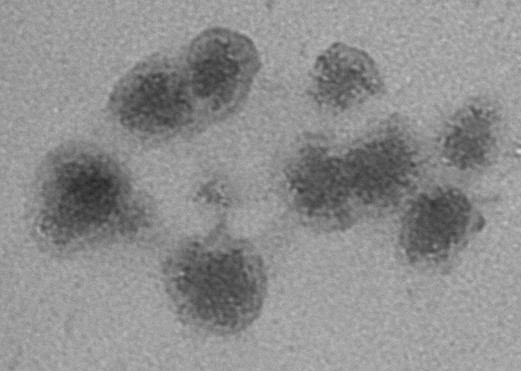Fibroblasts could be key in how cancer spreads around the body

A study from scientists in the Faculty of Medicine has shed new light on the mechanisms that promote cancer spreading within the body.
Fibroblasts are cells that provide structure and physical connection between healthy tissues. However, in cancer, activated fibroblasts (myofibroblasts) are thought to promote cancer invasion and spread (metastasis).
Recent studies looking at individual cells in tumours have found several different fibroblast populations, including myofibroblasts. However, it was not clear how different fibroblast populations came into existence.
In a new study, published in the Journal of Extracellular Vesicles, Southampton researchers have analysed how cancer cells influence the activation of fibroblasts in colorectal cancer.
The team, led by Dr Emre Sayan and Professor Alex Mirnezami, focused on signals between cancer cells and fibroblasts, sent in nano-sized packages called extracellular vesicles, also known as exosomes.
They found that exosomes from non-metastatic cancer cells contain high amounts of a small regulatory RNA, called miR-200 and this was shown to prevent activation of fibroblasts.
However, metastatic cancer cells, were found to produce EVs devoid of miR-200 and allowed fibroblast activation to proceed unchecked, creating a permissive environment for cancer progression.
The study showed that in over 300 human colorectal tumours there was a strong negative correlation between miR-200 and markers of fibroblast activation, suggesting that the laboratory findings hold true for cancer patients.
Dr Sayan said: “Our findings suggest that the metastatic capacity, or the percentage of cancer cells in a tumour that can spread, is a decisive factor in the formation of activated fibroblasts and helps to explain the relationship between metastasis and accumulation of activated fibroblasts, or myofibroblasts.
“Excitingly, these findings could have wider implications, as their fundamental nature make them applicable to other solid cancers such as breast, lung and prostate. Additionally, accumulation of activated fibroblasts in non-cancerous diseases such as liver, lung and kidney fibrosis could be explained using this novel mechanism.”
The study was generously supported by the University of Southampton, Cancer Research UK and a Medical Research Council Clinical Research Training Fellowship awarded to Dr Rahul Bhome.
